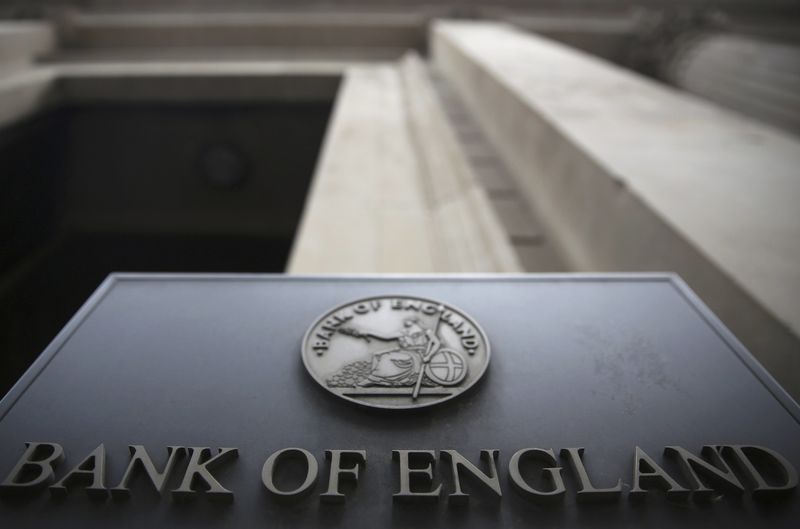Constellation Energy and Vistra stock surge after PJM capacity auction results
Investing.com -- Deutsche Bank analysts on Tuesday outlined a scenario in which the Bank of England (BoE) might implement a significant 50 basis points (bps) rate cut at its May meeting.
This perspective comes after former Monetary Policy Committee (MPC) member Charlie Bean suggested in a Guardian interview that the BoE may consider a more "forceful" response to current economic conditions. Bean cited the impact of the US's economic situation on UK business and consumer sentiment, which could lead to delayed purchasing and investment decisions.
Deutsche Bank (ETR:DBKGn) identified three key factors that could influence the MPC to opt for a larger rate cut, the first being a substantial decline in survey activity indicators. The MPC will review a range of survey data, including flash PMI and CBI reports due in the week of April 21, as well as the Decision Maker Panel survey for April, to gauge business reactions to recent tariff news.
Second, an unwarranted tightening in financial conditions could also push the MPC towards a larger rate cut. Recent weeks have seen financial conditions worsen, and Deutsche Bank expressed concern over potential liquidity issues in the financial system.
The BoE will release its credit conditions and bank liabilities surveys on April 17, which will miss the key tariff news but could still show signs of tightening that would support a more decisive rate cut.
Third, further signs of a slowdown in the labor market would influence the MPC's decision. The February labor market report and March preliminary payroll data, both due on April 15, will provide insights into job stability and wage settlements. Any indication of job losses or a softening in pay settlements could be pivotal for the MPC's policy response.
While acknowledging the possibility of a larger rate cut, Deutsche Bank maintains that the likelihood remains low, with the MPC more inclined to continue with quarter-point adjustments. This cautious approach is due to rising consumer price index (CPI) and inflation expectations, which the MPC discussed in its March policy deliberations.
However, Deutsche Bank noted that the probability of accelerated rate cuts is increasing, albeit from a low starting point. Should global economic headwinds strengthen, financial conditions tighten further, and more evident signs of economic slowdown emerge, the MPC may choose to act more swiftly.
Additionally, the potential for trade redirection from Asia into Europe amid the global trade conflict is another factor the MPC is expected to consider prior to the May decision.
